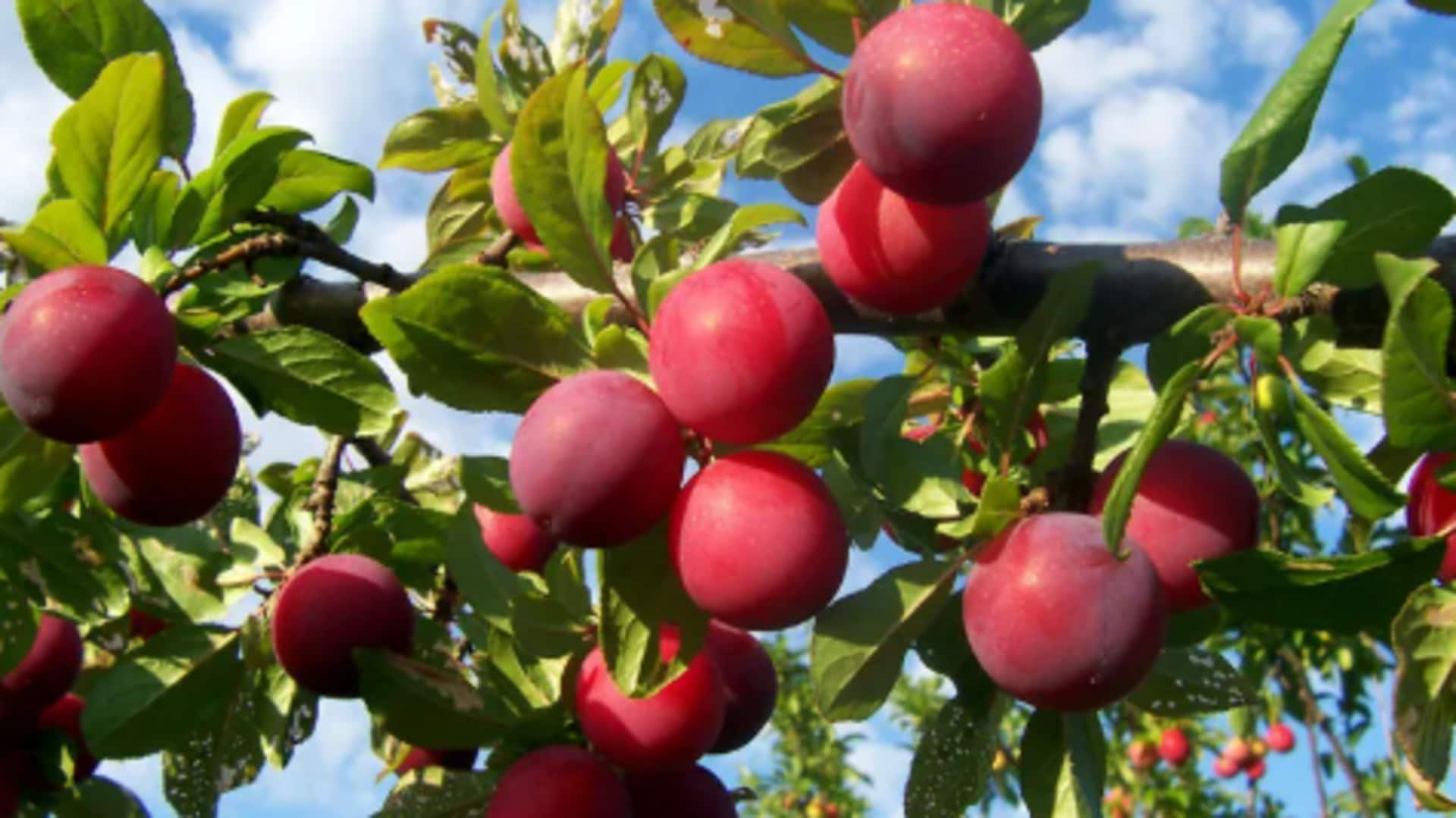Growing juicy plums in compact garden spaces
What's the story
Growing plums in small garden spaces is a delight for green thumbs.
With the right knowledge and care, you can cultivate these juicy fruits even in the tiniest of spaces.
This article provides essential tips on choosing the right variety, preparing the soil, pruning for success, and keeping pests at bay.
Get ready to enjoy a bountiful harvest of plums from your small garden space!
Variety selection
Choosing the right plum variety
Choosing the right plum variety is key to success in compact spaces.
Dwarf or semi-dwarf varieties are your best bet as they stay a manageable size, making them ideal for small gardens or even containers.
Opt for varieties that are disease-resistant and well-adapted to your climate zone to ensure they flourish.
Soil prep
Preparing your soil
Plums need well-drained soil with a neutral pH.
Before planting, amend the soil with organic matter like compost or well-rotted manure. This improves the structure and fertility of the soil.
A soil test is beneficial to see if any adjustments are needed for pH or nutrients.
Taking the time to prepare your soil properly will set the stage for healthy, productive plum trees.
Pruning
Pruning techniques for compact growth
Pruning is not only necessary to keep a manageable and tidy size but also crucial to stimulate fruit production.
During late winter or early spring before new growth starts, prune your plum tree to eliminate any dead or diseased wood and thin out congested branches.
This ensures sunlight and air circulation reach throughout the canopy, which is crucial for fruit development and minimizing disease risk.
Pest control
Managing pests naturally
Plum trees are susceptible to several pests, including aphids, plum curculio, and fruit moths.
To combat these organically, encourage beneficial insects such as ladybugs and lacewings in your garden.
These natural predators keep harmful pest populations in check.
Be vigilant! Regularly check your trees for any signs of infestation.
If necessary, use organic insecticidal soaps or neem oil treatments. Avoid chemical pesticides, as they can harm beneficial insects.
Watering
Watering wisely
Adequate watering is crucial for producing succulent plums, particularly in confined spaces where root competition is prevalent.
Plums thrive in evenly moist conditions, especially during the growing season, but waterlogged roots are detrimental, potentially causing root rot diseases.
Employ a drip irrigation system or utilize soaker hoses to apply water directly at the tree base, facilitating deep root zone penetration while conserving water by preventing wastage.
